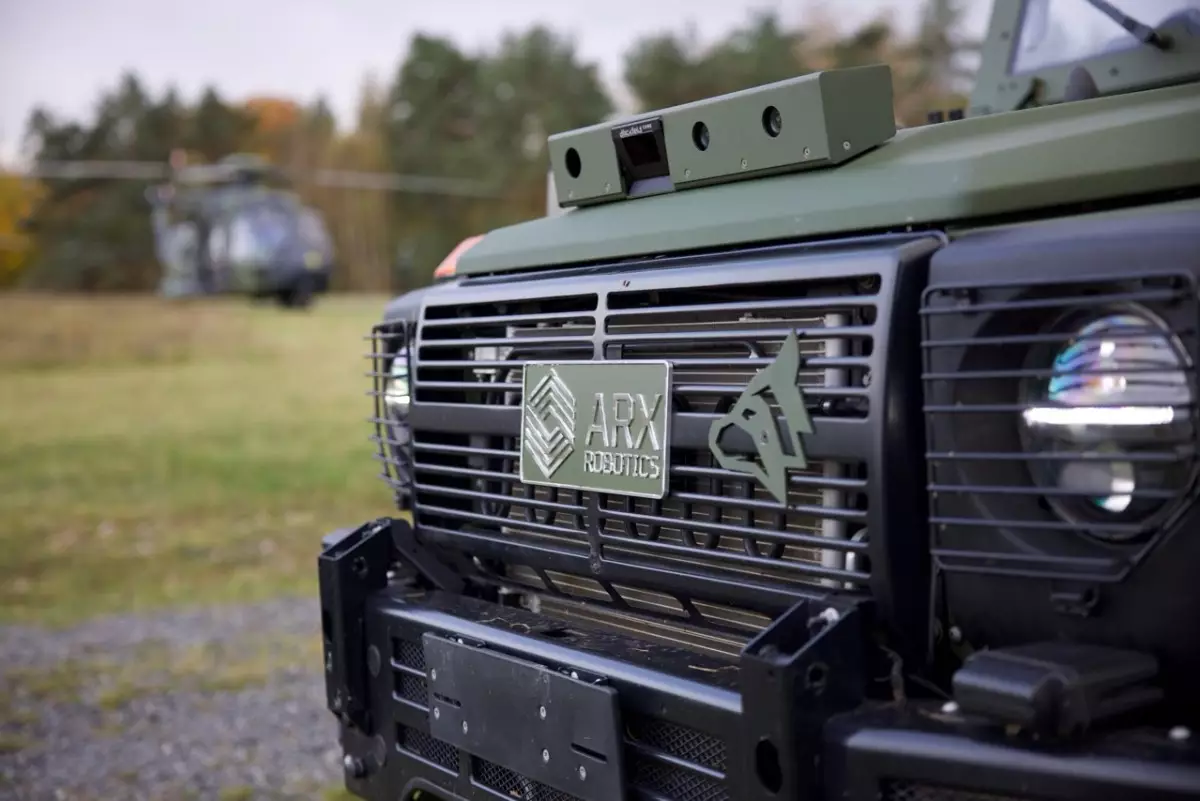In the rapidly evolving landscape of military technology, a German startup, ARX Robotics, is taking significant strides to address the challenges faced by defense forces. With founders who have firsthand experience in the German military, ARX Robotics is pioneering an innovative solution that breathes new life into legacy military equipment. Their latest offering bears resemblance to consumer technology like the Amazon Firestick but is aimed at revamping outdated military machinery into autonomous, AI-enhanced devices. This ambitious initiative demonstrates a growing awareness within defense sectors about the need for technological adaptation to modern warfare’s demands.
At the heart of ARX Robotics’ mission is the MITRA Operating System, an advanced AI-based framework designed to transform traditional military vehicles into interconnected autonomous units. The company has developed an approach that focuses not on replacing outdated assets but rather on enhancing them, likening their product to a digital upgrade for existing fleets. This perspective is crucial, especially as many military forces are equipped with antiquated technology that lacks the requisite software capabilities to operate in an increasingly digital battleground.
ARX’s strategy is timely, given the recent emphasis on modernization after the emergence of conflicts like the one in Ukraine. This regional conflict has exposed glaring gaps in military logistics and technology integration, presenting a unique opportunity for companies like ARX to step in and provide innovative solutions. Their funding success—with €9 million raised from the NATO Innovation Fund and other investors—underscores the strategic importance of their vision.
The insights of ARX’s CEO, Marc Wietfeld, reveal the obstacles that many NATO and Western militaries face. As he noted, despite significant investments in assets such as drones and other advanced systems, interoperability with existing fleets remains a challenge. The military’s acquisition of over 3,500 Mercedes trucks with an absence of modern connectivity illustrates a broader issue: many armies are clinging to analog systems that are ill-equipped for the demands of contemporary warfare.
In Wietfeld’s own words, “We are building robots, but we are also robotizing the existing fleets.” This dual approach aims not only to deploy new unmanned systems but to create a cohesive ecosystem where new and existing technologies can collaborate effectively.
Wietfeld claims that ARX Robotics stands alone in its specific niche, enhancing existing military assets rather than introducing entirely new systems, which can be cost-prohibitive and time-consuming. With many European forces dealing with resource limitations and budgetary constraints following the influx of military expenditure post-Russian invasion of Ukraine, the startup’s focus on upgrading rather than replacing could be a game-changer.
The critical factor lies in the ability to ensure various military vehicles and systems “speak one language,” as Wietfeld describes it. This concept emphasizes the need for universally compatible interfaces that allow disparate systems to operate seamlessly together, thereby enhancing situational awareness and operational effectiveness on the modern battlefield.
The interconnected nature of systems in warfare is becoming more pronounced, as demonstrated in recent conflicts. A significant focus on developing fleet intelligence and situational awareness is crucial for the effective deployment of military assets. ARX’s vision involves turning conventional vehicles into “wingmen”—support units that enhance the capabilities of frontline equipment through advanced sensing and AI capabilities.
While the future of military technology may hinge on developing novel solutions, integrating and upgrading existing systems can yield immediate and impactful results. The paradigm shift ARX Robotics proposes could ultimately redefine how military forces leverage their resources, leading to improved readiness and responsiveness in various operational contexts.
As ARX Robotics forges ahead with its pioneering solutions, the implications for global defense and military strategy are substantial. The startup illustrates a critical shift away from reliance on entirely new systems to recognizing the potential within legacy assets. In a world where military needs are evolving at an unprecedented rate, businesses that facilitate this transition will be pivotal in shaping the future of defense strategies. In this new era, the message is clear: adapting and upgrading our existing military assets is not just an option; it is an imperative for successful engagement in future conflicts.

